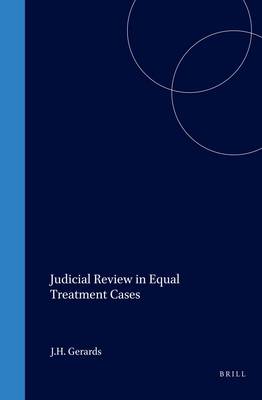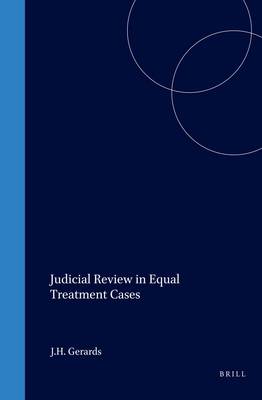
- Afhalen na 1 uur in een winkel met voorraad
- Gratis thuislevering in België vanaf € 30
- Ruim aanbod met 7 miljoen producten
- Afhalen na 1 uur in een winkel met voorraad
- Gratis thuislevering in België vanaf € 30
- Ruim aanbod met 7 miljoen producten
Zoeken
Omschrijving
In this study, an assessment model is developed to guide courts in deciding equal treatment cases. Such a model appears to be indispensable, since relevant equality provisions often do not offer much guidance as to the assessment of unequal treatment. This lack of guidance may lead to diverging approaches and outcomes, which is undesirable from the perspective of equality and legal certainty. The use of the assessment model developed in this study will improve judicial reasoning and enhance the legitimacy of equal treatment case law.
The general assessment model developed in this study is based on theoretical research after the standards that should be used in assessing cases against the principle of equal treatment, supplemented by an elaborate comparative analysis of the equal treatment case law in various legal systems. The result of this approach is the design of an assessment model that is both theoretically sound and workable in practice.
The Dutch edition of this book has been awarded with the Erasmus Study Prize 2003, the Max van der Stoel Human Rights Prize and the Constitutional Law Prize.
The general assessment model developed in this study is based on theoretical research after the standards that should be used in assessing cases against the principle of equal treatment, supplemented by an elaborate comparative analysis of the equal treatment case law in various legal systems. The result of this approach is the design of an assessment model that is both theoretically sound and workable in practice.
The Dutch edition of this book has been awarded with the Erasmus Study Prize 2003, the Max van der Stoel Human Rights Prize and the Constitutional Law Prize.
Specificaties
Betrokkenen
- Auteur(s):
- Uitgeverij:
Inhoud
- Aantal bladzijden:
- 774
- Taal:
- Engels
- Reeks:
- Reeksnummer:
- nr. 83
Eigenschappen
- Productcode (EAN):
- 9789004143791
- Verschijningsdatum:
- 30/03/2005
- Uitvoering:
- Hardcover
- Formaat:
- Genaaid
- Gewicht:
- 1516 g

Alleen bij Standaard Boekhandel
+ 606 punten op je klantenkaart van Standaard Boekhandel
Beoordelingen
We publiceren alleen reviews die voldoen aan de voorwaarden voor reviews. Bekijk onze voorwaarden voor reviews.











